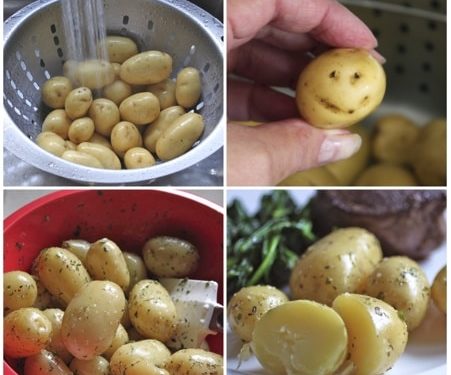There is a common household debate on whether it is safe to use baking soda and vinegar after using Drano to unclog drains. Drano’s website advises against using other chemicals due to potential hazardous reactions. However, some sources suggest that baking soda and vinegar can help neutralize any remaining Drano in the pipes. To ensure safety and avoid further damage, it is advisable to consult with a professional plumber for expert advice.
Key Takeaways:
- Using baking soda and vinegar after Drano may have conflicting opinions on its safety.
- Drano’s website warns against using other household chemicals together.
- Consulting a professional plumber is recommended for the best course of action.
Risks of Mixing Drano and Vinegar
Mixing Drano, which is a strong alkaline drain cleaner, with vinegar, an acidic substance, can lead to potentially hazardous reactions. It is crucial to avoid combining these two substances due to the risks involved. When Drano and vinegar come into contact, they can create a chemical reaction that releases toxic fumes and may even result in explosions. This reaction occurs because the alkaline nature of Drano and the acidic nature of vinegar interact in an unstable manner.
The combination of Drano and vinegar creates an exothermic reaction, which generates heat and produces gas. This release of gas can lead to an increase in pressure inside the drain pipes, potentially causing them to burst or leak. Additionally, the toxic fumes that are emitted during the reaction can be harmful to inhale and may cause respiratory irritation or other health issues.
Handling Drano and Vinegar Safely
It is important to prioritize safety when dealing with drain cleaners like Drano and vinegar. To protect yourself and your plumbing system, follow these guidelines:
- Never mix Drano and vinegar together. The risks associated with this combination outweigh any potential benefits.
- Read and follow all safety instructions provided by the manufacturer when using any drain-cleaning products.
- Handle Drano and vinegar separately, ensuring they are stored in their original containers and kept out of reach of children and pets.
- If you have used Drano and need to use vinegar for another purpose, thoroughly rinse the affected area with water to minimize the chances of chemical reactions.
By understanding the risks of mixing Drano and vinegar, you can take the necessary precautions to maintain a safe and functional plumbing system in your home.
Alternative Drain Cleaners: Baking Soda and Vinegar
When it comes to drain cleaning, many people are looking for natural and homemade solutions. Baking soda and vinegar have emerged as popular alternatives to commercial drain cleaners. These household ingredients may offer a more environmentally friendly option while being gentler on your plumbing system. Let’s take a closer look at how baking soda and vinegar can be used as natural drain cleaners.
Baking soda, also known as sodium bicarbonate, is a mild alkaline substance that can help break down grease, grime, and other organic materials that contribute to clogged drains. Vinegar, on the other hand, is an acidic liquid that can help dissolve mineral deposits and clear away small blockages. When combined, baking soda and vinegar create a foaming reaction that can help dislodge debris and unclog drains.
However, it is important to note that while baking soda and vinegar can be effective for minor clogs, they may not be as powerful as commercial drain cleaners for more severe blockages. If you’re dealing with a persistent or severe clog, it is advisable to seek professional help from a plumber who can diagnose the issue accurately and provide the appropriate solution.
Baking Soda and Vinegar Drain Cleaning Recipe
If you’re looking to try using baking soda and vinegar to unclog your drains, here’s a simple recipe you can follow:
- Mix 1/2 cup of baking soda with 1/2 cup of vinegar in a measuring cup or bowl.
- Pour the mixture down the clogged drain.
- Let it sit for about 30 minutes to allow the foaming action to break down the clog.
- After the time has passed, flush the drain with hot water to clear away any remaining debris.
Remember, this recipe is best suited for minor clogs and should not be used as a substitute for professional plumbing services when dealing with more serious drain issues. Additionally, it is always a good idea to perform regular drain maintenance to prevent clogs from occurring in the first place.
In conclusion, baking soda and vinegar can serve as natural and homemade drain cleaners for minor clogs. They offer a more environmentally friendly option and can be effective in certain situations. However, for severe clogs or complex plumbing problems, it is recommended to consult a professional plumber to ensure the safety and integrity of your plumbing system.
Using Baking Soda and Vinegar to Unclog Drains
When faced with a minor drain clog, you can try using baking soda and vinegar as a do-it-yourself solution before calling a professional plumber. Here are the steps to unclog drains with baking soda and vinegar:
- Pour boiling water down the drain: Start by pouring boiling water down the drain to help loosen any debris and clear the way for the baking soda and vinegar mixture.
- Measure and pour baking soda: Measure half a cup of baking soda and pour it down the drain. Make sure it reaches the clogged area.
- Pour vinegar: Next, pour a cup of vinegar down the drain. You’ll notice a fizzing reaction between the baking soda and vinegar, which helps in breaking down the clog.
- Cover and wait: Cover the drain with a plug or any suitable cover to prevent the fizzing action from escaping. Let it sit for about 30 minutes to an hour.
- Rinse with hot water: Finally, remove the cover and rinse the drain with hot water. This will flush away the broken down clog, leaving your drain unclogged.
It’s important to note that using baking soda and vinegar may not be as effective for severe clogs. For more stubborn blockages or if the clog persists, it is recommended to seek the assistance of a professional plumber.
This DIY method with baking soda and vinegar can be a cost-effective and environmentally friendly way to deal with minor drain clogs. However, it’s always a good idea to consult a professional if you’re unsure or dealing with a complex plumbing issue.
| Pros | Cons |
|---|---|
| Cost-effective | May not be effective for severe clogs |
| Environmentally friendly | May require multiple attempts |
| Easy to do at home | Can take time to show results |
Knowing When to Seek Professional Help
While baking soda and vinegar can be effective for minor drain clogs, there are situations where it is best to call a professional plumber. Attempting to handle more complex drain issues on your own can lead to further damage and potentially costly repairs. It’s important to recognize the signs that indicate it’s time to hire a professional for drain cleaning services.
Signs to Call a Plumber for Drain Issues
- Persistent or Severe Clogs: If you’ve tried using baking soda and vinegar or other DIY methods and the clog persists or is particularly severe, it’s time to bring in a professional. They have the necessary tools and expertise to handle tough blockages.
- Foul Odor from the Drain: A persistent foul smell coming from your drain could indicate a more serious underlying issue. A plumber will be able to identify the source of the odor and take appropriate measures to resolve it.
- Multiple Drains Clogged at Once: If you notice that multiple drains in your home, such as sinks, showers, or toilets, are clogged simultaneously, it could be a sign of a larger problem further down the sewer line. A plumber will be able to assess the situation and provide the necessary repairs.
- Slow-Draining Sewer Line: If you’re experiencing slow drainage throughout your home’s sewer line, it could indicate a blockage or other issues that require professional attention. A plumber can inspect the line and recommend the appropriate course of action.
By recognizing these signs and knowing when to seek professional help, you can avoid further damage to your plumbing system and ensure that the problem is resolved effectively and safely. Hiring a plumber for drain clogs and complex issues gives you peace of mind knowing that the job will be done correctly and efficiently.
| DIY Methods | Professional Services |
|---|---|
| Can be effective for minor clogs | Handle persistent or severe clogs |
| May not address underlying issues | Detect and resolve complex drain problems |
| Relatively inexpensive | Ensure long-term plumbing system integrity |
| No guarantee of success | Provide expert advice and recommendations |
While DIY methods can provide temporary relief for minor drain clogs, professional drain cleaning services offer a comprehensive solution to address more challenging issues. It’s always prudent to consult a professional plumber when in doubt to avoid exacerbating the problem or compromising the safety of your home. Remember, a small investment in professional services can save you from costly repairs down the line.
Table: DIY Methods vs. Professional Services for Drain Cleaning
Tips for Preventing Drain Clogs
Proper drain maintenance is crucial to prevent clogged drains and avoid the hassle of drain unclogging. Here are some simple yet effective tips to help you maintain your drains:
1. Regularly clean your drains: To prevent buildup and blockages, it is important to clean your drains regularly. Use a mixture of hot water and dish soap to flush away any grease or debris that may accumulate in the pipes.
2. Install drain strainers: Placing drain strainers in your sinks and showers can effectively catch hair, food particles, and other debris before they enter the drain. This simple addition can significantly reduce the risk of clogs.
3. Avoid pouring grease down the drain: Grease solidifies when it cools down, leading to stubborn clogs. Instead of pouring grease down the drain, collect it in a container and dispose of it in the trash.
4. Be mindful of what goes down the drain: Certain items should never be disposed of through the drain, such as coffee grounds, eggshells, fibrous fruits and vegetables, and non-biodegradable materials. Dispose of them in the appropriate waste containers.
5. Flush drains with hot water: Once a week, pour a kettle of hot water down each drain to help dissolve and flush away any potential buildup before it becomes a problem.
6. Consider using enzymatic drain cleaners: Enzymatic drain cleaners are safe and eco-friendly options that can help break down organic matter and prevent clogs. Follow the instructions on the product for optimal results.
By following these simple tips, you can maintain the health and functionality of your drains and minimize the need for drain unclogging. However, if you encounter persistent or severe clogs, it is always best to seek the assistance of a professional plumber.
FAQ
Can I use baking soda and vinegar after using Drano?
Mixing Drano, which is alkaline, with vinegar, which is acidic, can create a potentially hazardous reaction. It is best to avoid combining the two substances to protect your safety and the integrity of your plumbing system.
What are the risks of mixing Drano and vinegar?
Mixing Drano and vinegar can release toxic fumes and even cause explosions. It is important to avoid combining these two substances to prevent any potential dangers.
Are there alternative drain cleaners I can use?
Baking soda and vinegar can be used as alternative drain cleaners, especially for minor clogs or as a preventive measure. However, they may not be as effective as commercial drain cleaners for more severe clogs.
How can I use baking soda and vinegar to unclog drains?
To use baking soda and vinegar for minor drain unclogging, you can follow these steps: [provide steps here].
When should I seek professional help for drain issues?
It is advisable to call a professional plumber for persistent or severe clogs, foul odor from the drain, multiple drains clogged at once, or a slow-draining sewer line. A plumber has the expertise and tools to address more complex drain issues.
What are some tips for preventing drain clogs?
To prevent drain clogs and minimize the need for unclogging, consider the following tips: [provide tips here].





